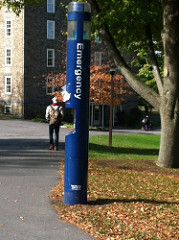When a parent asks me “Should my child do this activity?” I usually cringe. This question is bothersome because it’s a rather loaded question in that what parents really are asking is “If my child does this activity, will it help their college application?”
That’s the wrong question for 3 reasons:
- There is only so much time that a teen has outside of school. Some of that outside time will be spent sleeping, spending time with family and friends, homework, ____. Given the limited amount of time left for doing the activities that a teen enjoys, then the focus of that extra time would best be spent on what the teen actually enjoys doing.
- Because college is one of several pathways on an educational journey, determining the best colleges for any teen starts with why that teen wants to go to college and what their interests and needs are. The activities that a teen participates in therefore should not be determined based on what the college wants.
- Colleges base their admissions decisions on their own institutional priorities. With 2,500+ colleges and universities across the US of all different shapes and sizes, it’s very hard to create an activities resume that will be right for every college.
So then the thing that a student should “do” to get in college is to be their authentic selves. The right activities then will be those that a teen is genuinely interested in doing and wants to do.
So when I get that first question, “Should my child do x?” I respond with “Is your child interested in doing x?”
If the response to my question is yes, then I applaud that child for their effort in participating in that activity, whatever it may be. Here is a range of activities that my students included on their resumes . . without concern for it being solely to get in college:
- Camping
- Cheer
- Coding
- Dancing
- Fencing
- Knitting
- Model UN
- Painting
- Student government
- Tutoring
And all of these students were admitted to colleges of all shapes and sizes where they are thriving. A common thread among all these activities is that students had depth, not just breadth. For example, the student who knitted did so through organized groups and summer experiences. The painter showcased his art at schools, attended extra classes and even presented a portfolio to colleges. . . although he’s not an art major.
If the response to my question is no, then my answer is “It’s not worth the time.” When a teen wastes time doing an activity just for the sake of doing it, it will be challenging for that student to find the colleges that are the best fit where they can thrive.
What activity does your teen enjoy? How does your teen determine their extracurricular activities?




